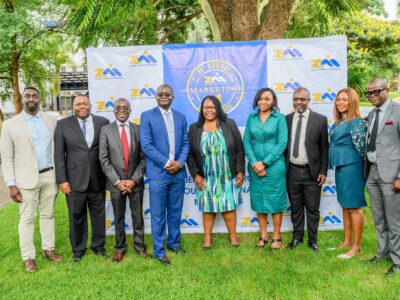The Zambian Government has launched the World Bank-supported US$63.9 million Eastern Province Jurisdictional Sustainable Landscape Programme.
The programme is aimed at improving livelihoods and reducing emissions from forestry and land use sectors.
Green Economy and Environment Minister, Mike Mposha, who launched the programme in Lusaka on Wednesday at the Mulungushi International Conference Centre, said this was a follow-up to the Zambia Integrated Forest Landscape Project, which concluded on February 29, 2024.
The launch was attended by World Bank representatives and acting British High Commissioner to Zambia, Sam Waldock.
Mposha noted that the programme introduced results-oriented climate financing, focusing on carbon trading, benefit sharing and climate change mitigation in Eastern Province.
“Of the total funding, US$50 million will be allocated to purchasing verified emission reductions, while US$13.9 million will support investments in sustainable forest management, climate-smart agriculture, and wildlife management in the province,” Mposha said.
He added that the verified emission reductions would be traded as certified carbon credits through the biocarbon fund initiative for sustainable forest landscapes and other international carbon buyers.
The generated monetary benefits would be transparently distributed to local communities to encourage better management of natural resources.
The programme will run from 2024 to 2030 and is expected to generate 29 million tons of carbon dioxide equivalent in verified emission reductions. These carbon credits will be traded on international markets, with revenue distributed among rural communities in all 57 chiefdoms, private carbon developers, and government institutions in Eastern Province.
Read More: Zambia, Sweden sign deal to advance carbon credit transaction under Paris agreement
The revenue distribution would follow a benefit-sharing plan: 15 percent to the government, 30 percent to private carbon project developers, and 55 percent to communities.
World Bank Country Manager, Dr Achim Fock, stated that the programme would scale up sustainable agriculture and forest activities, improving agricultural yields, incomes and community resilience against climate change impacts.
He also noted its potential to reduce greenhouse gas emissions while delivering co-benefits such as biodiversity conservation.
Acting British High Commissioner, Sam Waldock, added that well-designed jurisdictional programmes can deliver both livelihood and carbon benefits at scale.
He cited the first phase of the programme, which recruited and trained 115,000 farmers across 190,000 hectares of Eastern Province through climate-smart agriculture.
WARNING! All rights reserved. This material, and other digital content on this website, may not be reproduced, published, broadcast, rewritten or redistributed in whole or in part without prior express permission from ZAMBIA MONITOR.












Comments